
 Post Category - HomeHome
Post Category - HomeHomeFinding the right Hong Kong property agent is the first step to buying your dream home. From 28hse and Centaline to Midland Property and Habitat, here are Hong Kong property agents that you can trust.
Buying (or renting) a property in Hong Kong is no easy feat. The endless paperwork for tiny homes that cost an arm and a leg, plus the added stress of raising a family can take a toll on anyone. This is where having a good Hong Kong property agent can make a huge difference. We’ve done the legwork and found some of the best property agents in Hong Kong. Plus, we’ve put together tips on what you need to consider and the costs involved in buying a house in Hong Kong.
Jump To:
Best Property Agents In Hong Kong
What To Consider When Buying Property In Hong Kong
Read More: Movers And Moving Companies For Local And International Moves
Best Property Agents In Hong Kong
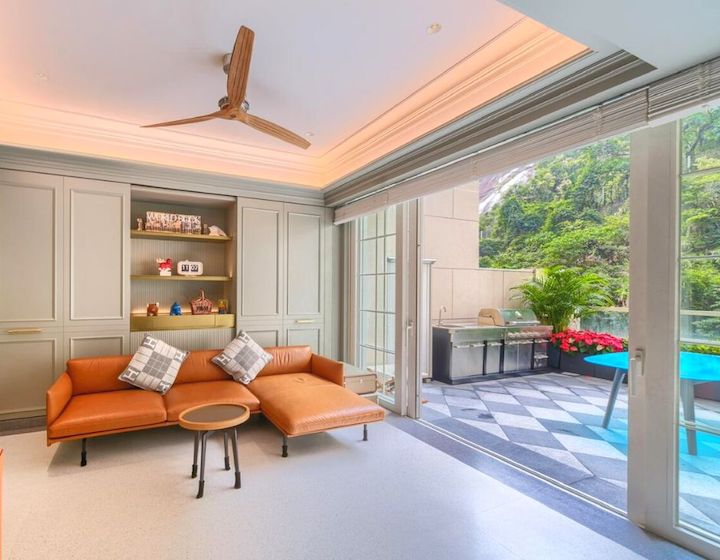
Engel & Völkers Hong Kong – Hong Kong property agents with 900 locations worldwide
One of the leading real estate companies with over 900 locations around the world, you can be assured that Engel & Völkers will take care of your housing requirements with utmost professionalism. It has loads of luxury apartments, penthouses, duplexes and more to suit your needs.
![]() Engel & Völkers Hong Kong, Shop A, Ground Floor, 95 Caine Road, Mid Levels, Hong Kong, www.hongkongev.com
Engel & Völkers Hong Kong, Shop A, Ground Floor, 95 Caine Road, Mid Levels, Hong Kong, www.hongkongev.com
Midland Realty – Hong Kong property agent providing multilingual services
Rooted in Hong Kong for nearly half a century, Midland Realty has properties all over the city. Its agents are equipped with comprehensive knowledge of property valuation, mortgage, compliance regulations and more, plus it provides customer services in English, Cantonese and Mandarin.
![]()
Midland Realty, Room 2505-8, 25/F, World Wide House, 19 Des Voeux Road Central, Central, Hong Kong, 2311 1200, www.midland.com.hk
Read More: Hong Kong Handyman And Home Services – Plumbers, Painters And More
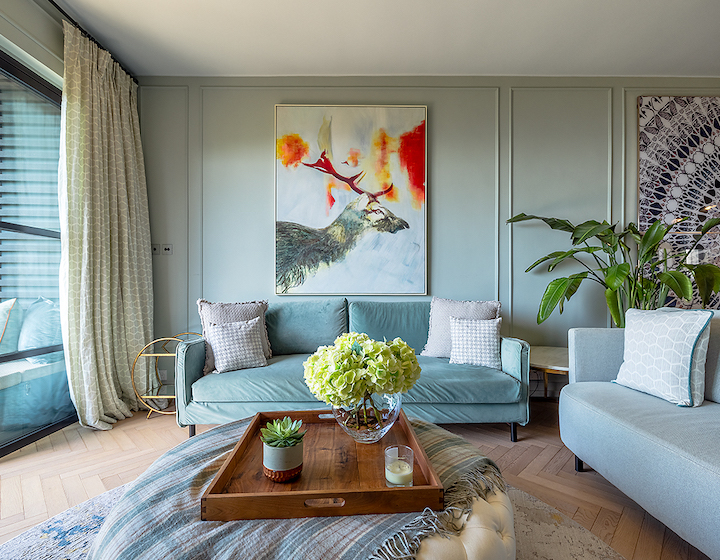
Habitat Property – Luxury property agent in Hong Kong
Looking for your dream luxury home in Hong Kong? Habitat Property is renowned for offering exceptional service to its clients – 70% of its clients are referrals! It has an extensive portfolio of top-quality properties on Hong Kong Island (Southside, Repulse Bay, Stanley, Mid-Levels and The Peak).
![]()
Habitat Property (Central Office), 1201-05, 12/F, Yu Yuet Lai Building, 43-55 Wyndham Street, Central, Hong Kong, 2869 9069
![]()
Habitat Property (Stanley Office), LG/F, 80 Stanley Village Road, Stanley, Hong Kong, 2880 9069, www.habitat-property.com
NEST Property – Property agents with a wealth of experience
Popular with expats, NEST Property offers gorgeous properties whether you’re looking for a rooftop, garden, pool, children’s playground and more. Each of its consultants has tertiary education from prestigious universities around the world and a wealth of experience that will help you find your home.
![]()
NEST Property, Suite 1301, 13/F, Hollywood Centre, 233 Hollywood Road, Sheung Wan, Hong Kong, 3689 7523, www.nest-property.com
Read More: Where To Buy Outdoor Furniture In Hong Kong
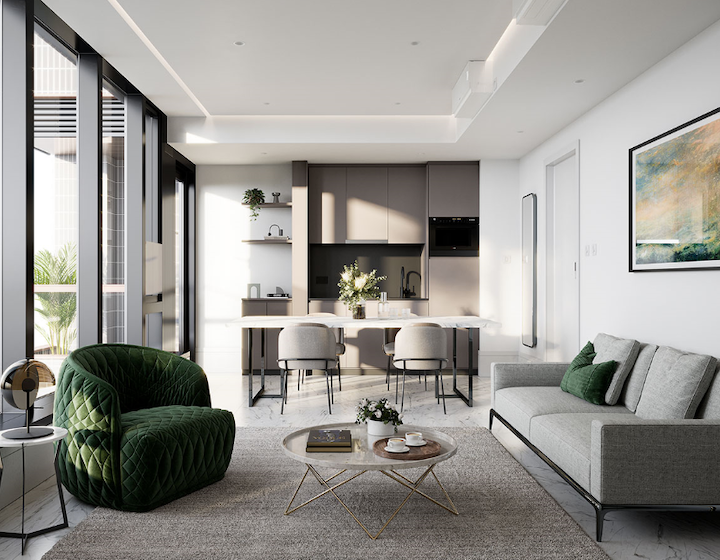
HomeWise Realty – Hong Kong property agents perfect for families wanting to move to Hong Kong
Looking to move to Hong Kong? HomeWise Realty might be the perfect fit for you. It has a team of experts dedicated to finding the perfect property for your family where you can truly build a life. Its services include everything from an initial assessment of your preferred property type right through to full relocation assistance.
![]()
HomeWise Realty, Room 9B, Teda Building, 87 Wing Lok Street, Sheung Wan, WhatsApp: 2811 2893, www.homewise.hk
Centaline Property – One of the largest property agencies in Hong Kong
If you’ve walked around the streets of Hong Kong, you’ve likely walked by a Centaline Property office. It is one of the largest property agencies in Hong Kong that provides one-stop agency services including residential property services, mortgage broking, immigration/emigration consultancy and more.
![]()
Centaline Property, various locations across Hong Kong, www.hk.centanet.com
Read More: Where To Buy Bedding In Hong Kong – Bed Sheets, Bed Linen, Duvet Covers & More
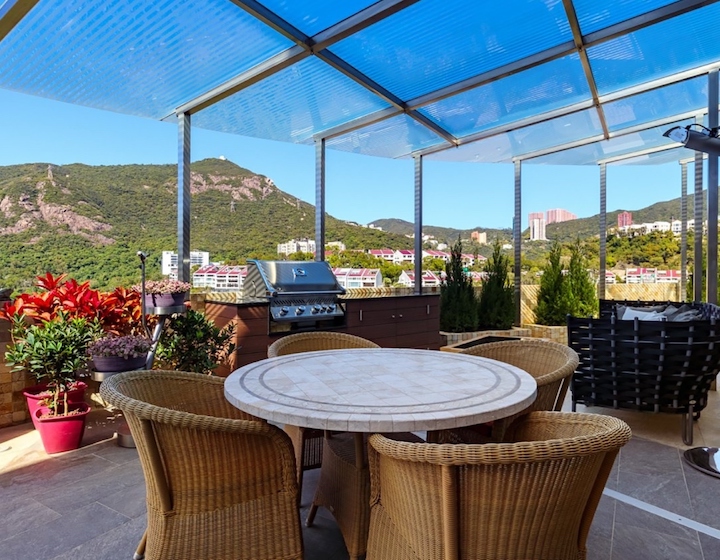
Knight Frank – World’s leading property agent with offices across Greater China
Knight Frank is the world’s leading independent property advisor with offices all across Greater China. With several accolades under its belt, it promises to go the extra mile to exceed its client’s expectations. You’ll find everything from apartments to penthouses and villas here.
![]()
Knight Frank (Hong Kong Island), 4/F, Shui On Centre, 6-8 Harbour Road, Wan Chai, Hong Kong, 2840 1177
![]()
Knight Frank (Kowloon), Unit 1610 – 1611A, BEA Tower, Millennium City 5, 418 Kwun Tong Road, Kwun Tong, Kowloon, 2846 0600, www.knightfrank.com.hk
Read More: Where To Buy Indoor Plants In Hong Kong – Plant Nurseries That Deliver House Plants
28Hse.com – Online platform for finding your dream home
Established in 2005, 28Hse.com is an easy-to-use online platform and app that wants to increase transparency in the real estate industry. You can select your preferred neighbourhood, property type, price range and size and get in touch with the agent or owner. A lot of the other property agents in Hong Kong usually also list their properties on this website.
![]()
28Hse.com, www.28hse.com

More Property Agents In Hong Kong
- Century 21 – Professional real-estate consulting services with over 110 branches across Hong Kong. www.c21.hk
- Eastmount Property Agency Limited – Property agent in Sai Kung specialising in village houses, waterfront houses and luxury and unique homes. www.eastmount.com.hk
- Hong Kong Homes – Leaders in prime residential sales and leasing with a multinational team of professionals, it also offers relocation services for expats. www.hongkonghomes.com
- OKAY – Award-winning real estate agency where property agents are dedicated to helping, not hard-selling. www.okay.com
- Oasis Property – Specialises in the luxury residential real estate market in Hong Kong. www.oasisproperty.com.hk
- Richland Property – Superior quality real-estate agency services for Tai Po residents. www.rl.com.hk
Read More: Hong Kong House Cleaning Services, Carpet Cleaning, Air Con Cleaning And More
Things To Consider When Buying Property In Hong Kong
 Narrow Down On Your Preferred Location
Narrow Down On Your Preferred Location
The old adage when buying a property is “Location, location location”. So how do we apply that here? You’ll have to consider which area realistically works for your lifestyle, where you are happy to commute from and where you are in your life. A single person out five nights a week in SoHo and K-town has a very different approach to someone with a baby and different again to someone with a family with older kids. Schools, environment, space, facilities and family location are all important factors.
Read More: Hong Kong International Schools – Where To Send Your Kids For An Global Education
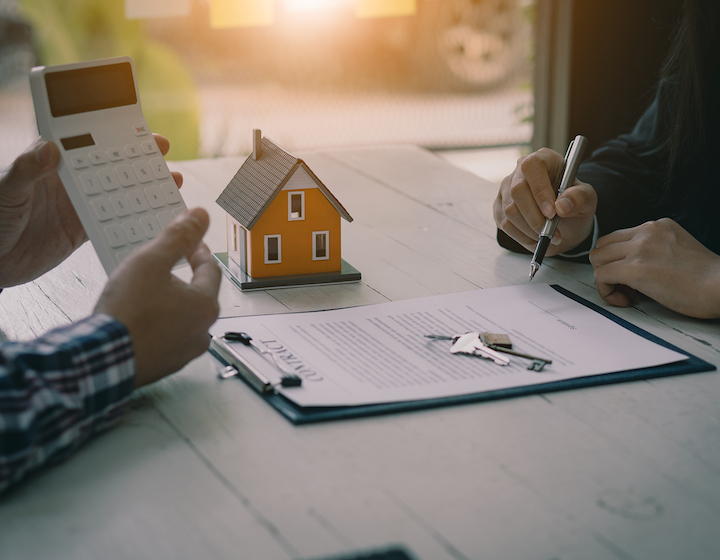
 How Much Can You Borrow?
How Much Can You Borrow?
If you are a Permanent Resident buying your first and only Hong Kong property, you are potentially able to borrow up to 90% of the purchase price. This is made up of 60% guaranteed by the bank and 30% backed up by insurance from the Hong Kong Mortgage Corporation (HKMC). The HKMC will charge you for this additional security. Both the bank and the HKMC will look at your earnings, net worth and expenses and have transparent but strict eligibility criteria.
Most banks have a mortgage calculator and property valuation tool and it is worth checking with a couple of banks to see what they think the apartment is worth as it does vary. Please note that banks will lend based on their own valuation and not the final price. So you may be willing to buy a property for 10m because it has been beautifully renovated. However, if the bank has valued it at 5m, you will be able to borrow 90% of 5m and not 90% of what you have paid. Eventually, though, this should level out because you probably will not have to spend on interior work and renovations.
Read More: Kid’s Pocket Money – When To Start, How To Do It And Pocket Money Apps
 When Do You Have To Pay?
When Do You Have To Pay?
When your offer is accepted and you sign the sale and purchase agreement, you will pay 5% of the purchase price. Another 5% will be due when you sign the full sales contract (usually around a week later) which is also when you will pay the stamp duty. If you are a Permanent Resident, you will pay 3.75% of the total price as Stamp Duty; if you are not, you will pay an astonishing 30%. The deposits and stamp duty are paid to your solicitor. These don’t go to the current owner until the property sale is fully completed and the keys are in your hand (which usually takes around two months).

 How Do You Get A Mortgage?
How Do You Get A Mortgage?
Most banks offer mortgages and the rates are fairly similar. You can compare the different offers available on websites like MoneySmart. Banks will usually offer incentives to entice you, these can include “Cashback” where you get a cash payment on completion, free home insurance and supermarket vouchers.
The important comparison is the interest rate you pay on the loan and how that can vary. Hong Kong banks generally offer variable mortgages with a capped rate. When budgeting for your monthly payment, always assume you will need to pay the maximum capped rate. You will be delighted if the mortgage payment is less!
The bank will need various documents including at least three months of payslips and bank statements. They usually want to look at your previous tax statement as well to confirm how much you earn, the includes both your regular salary and your bonuses.
Read More: Money Saving Tips – How To Cut Your Family Grocery Bills
 What Is Mortgage Insurance?
What Is Mortgage Insurance?
Banks lend up to 60% themselves. The Hong Kong Mortgage Corporation determines if an additional 30% is possible and you will pay insurance on this. The HKMC website is very user-friendly and will help you to understand the whole process of getting a mortgage and also how much it will be possible for you to borrow. There is also an obligation to live in the apartment if you have used the HKMC to get a higher mortgage amount.
Check your eligibility for this Mortage Insurance Programme (MIP) and what you need to commit to carefully. This extra insurance fee can be added to the mortgage by the bank so there are no upfront costs involved but you will be paying interest on that extra amount.
 What Other Fees Are Involved?
What Other Fees Are Involved?
You will need a solicitor to represent you. Usually, the agent knows a good one but it’s a good idea to shop around. The agent will generally take 1% from you and 1% from the seller which is due on completion.
If you are used to renting in Hong Kong, you could be in for a surprise when you get the first bill for the Government rates and the building maintenance. Make sure you add these in when you are calculating how much you will be paying for the property per month. Be careful when buying older buildings, as you might not be allowed a longer-term mortgage. Also, if there are renovations planned by the building owners committee you might be on the hook for your share. Your agent should be able to help you navigate all of this; they are getting a commission, so make them earn it!
Read More: How To Get A Job In Hong Kong – Tips To Getting Back Into The Workforce
Editor’s Note: “Top Hong Kong Property Agents: Things To Know Before Buying A House” was most recently updated in May 2023 by Najuka Redkar. Special thanks to Eleanor Coleman for her contribution.
 View All
View All











 View All
View All





 View All
View All


 View All
View All














